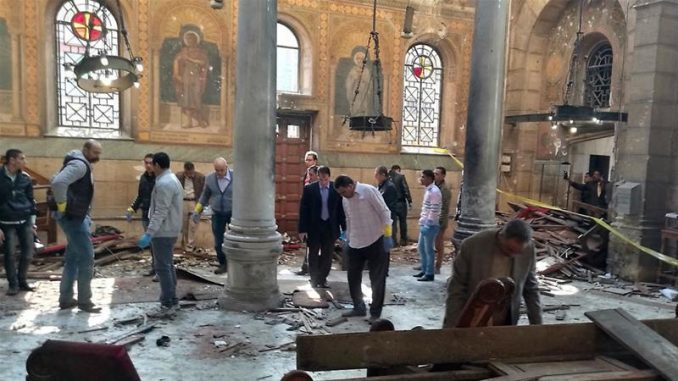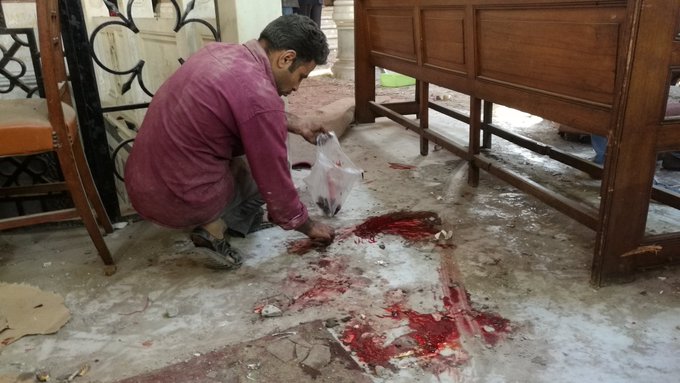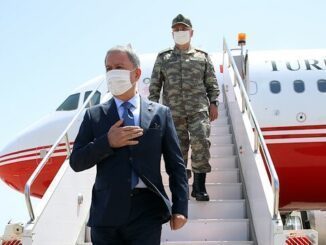
Amal Louka, who works with a service for disabled people at the cathedral, said she was in a meeting in an adjacent church when she heard the explosion, said “We heard a very loud noise – it felt as if the church was falling down,” she said. “When we got to the scene, there was a lot of blood and severed body parts as well as many corpses on the floor. The explosion had hit the women’s area of the church, so most of the casualties were women.”
Dr Maha Halim gathered with hundreds of others to express their grief at the entrance to the cathedral in the hours after the bombing. “They timed [the attack] to the prayers, to kill as many people as possible,” she said. “There is obviously a feeling of grief, but this will not shake Egypt.”
Alexandria’s al-Qiddissin church bombing in 2011
On New Year’s Eve of 2011 in the city of Alexandria in Egypt, Coptic Christians were celebrating New Year Mass at the al-Qiddissin (Saints) Church. As the service drew to a close, a bomb outside went off in the street outside. The priest tried to calm those inside, with little success. 21 people were killed, and 43 people were injured. Initially it was assumed that the blast was produced by a car bomb, though Egypt’s Interior ministry later claimed that it was the work of a suicide bomber.
Ex-minister suspected of orchestrating al-Qiddissin church bombing
Egypt’s general prosecutor – on Feb. 7, 2011 – opened probe on former Interior Minister Habib el-Adly’s reported role in the 2011 New Year’s Eve bombing of al-Qiddissin Church in Alexandria in which 24 people were killed.
Laywer Ramzi Mamdouh said he had presented a proclamation to Egyptian prosecutor Abd al-Majid Mahmud to investigate news media reports suggesting that the former interior ministry had masterminded the deadly church attack with the intent to blame it on Islamists, escalate government crackdown on them, and gain increased western support for the regime.
The proclamation, numbered 1450, pointed to the news reports sourcing a UK diplomat who explained the reasons why Britain has insisted on the immediate departure of Egyptian President Hosni Mubarak and his regime, especially his interior ministry’s security apparatus previously directed by el-Adly.
According the UK diplomatic sources quoted in the reports, the former interior minister had built up in over six years a special security system that was managed by 22 officers and that employed a number of former radical Islamists, drug dealers and some security firms to carry out acts of sabotage around the country in case the regime was under threat to collapse.
The proclamation also pointed, sourcing reports on UK intelligence services, that interior ministry officer Maj. Fathi Abdelwahid began on Dec. 11, 2011 preparing Ahmed Mohamed Khaled, who had spent 11 years in Egyptian prisons, to contact an extremist group named Jundullah and coordinate with it the attack on the Alexandria church.




